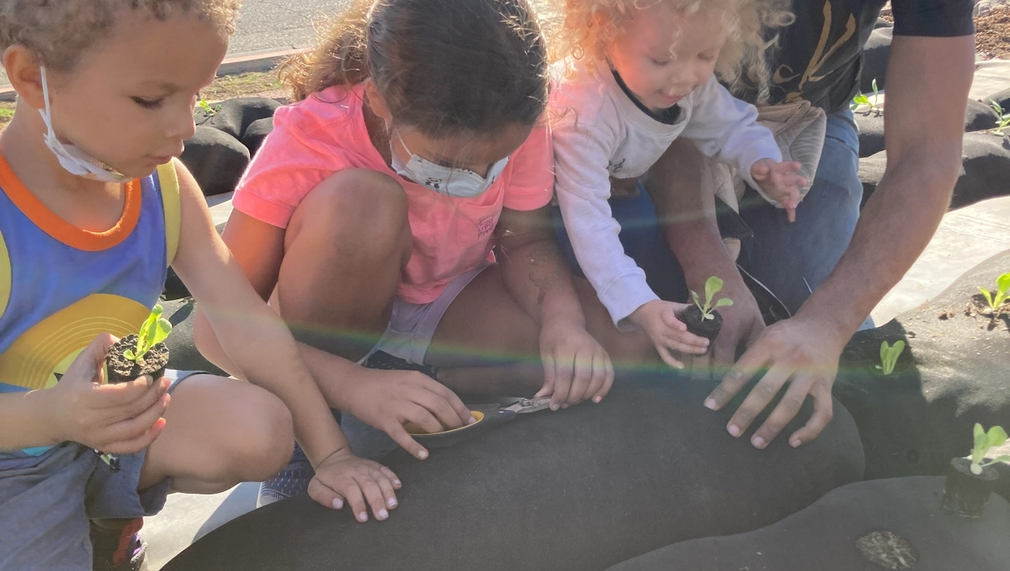South LA Seedling Shuttle
Crop Swap LA will repurpose a food truck to become a mobile plant nursery, a "South LA Seedling Shuttle". This project will support Los Angeles’ urban farming and home gardening communities by providing organic and culturally important vegetable seedlings that reflect the region's unique agricultural history. This effort will expand food sovereignty in our underserved communities, which often lack access to basic growing necessities, while helping build a more sustainable, water-conserving, and diverse food system in our City.

What is the primary issue area that your application will impact?
Climate and Environment
In which areas of Los Angeles will you be directly working?
Central LA
East LA
South LA
In what stage of innovation is this project, program, or initiative?
Expand existing project, program, or initiative
What is your understanding of the issue that you are seeking to address?
There are zero available commercial/wholesale plant nurseries in South Los Angeles, and few overall in the County-- urban farmers in our area rely on a patchwork supply chain that involves trekking long distances, sharing & swapping with other farmers, or expensive and carbon intensive shipping. More broadly, fruit and vegetable seed genetic diversity has plummeted over 90% in the last 200 years as a result of industrialized agriculture. This lack of diversity in food production translates to a lack of adaptability, a large challenge in the face of rapidly changing climate and growing conditions. This is most salient in the form of the ongoing megadrought plaguing California, causing agriculture operations to reassess or stop growing altogether. Drought tolerant vegetables, particularly those in the crucifer family (Brussels sprouts, cabbage, cauliflower, collards, kale, kohlrabi, mustard, broccoli, turnips and watercress) do very well growing in Los Angeles.
Describe the project, program, or initiative this grant will support to address the issue.
With the South LA Seed Shuttle, Crop Swap LA aims to expand our seed growing and plant nursery operations to not only become self-sufficient and support our microfarm network, but to make quality vegetable seedlings available to our fellow urban farmers and home gardeners at an affordable price. These seedlings will be specially cultivated to thrive in Los Angeles' climate in an outdoor urban setting, while also honoring the unique cultural heritage of our region's agricultural history. This will include indigenous and native plants, popular staples from the time in the early 20th century when Los Angeles was the top producing County in the country, to present day reflection of our communities' demographics. By choosing to make this mobile, the project not only reduces overhead and transaction costs, but enables built-in distribution and ease of participation in local farmer's markets, events, and community pop-ups. We can serve a wide radius covering South LA, Central LA, and East LA, which is home to an increasing number of urban farms, but lacks a reliable seedling supplier. As added value, the Seed Shuttle can operate as an educational and workshop tool for schools, conferences, and other event opportunities.
Describe how Los Angeles County will be different if your work is successful.
Urban agriculture is growing rapidly, providing myriad benefits ranging from increasing food security to climate resilience. In Los Angeles, there are currently over 200 urban farming sites, largely operating uniquely and independently. Crop Swap LA fully believes in the transformative power of urban agriculture, and is committed to supporting this continued growth in a healthy, sustainable way. Tackling this supply chain issue in the South LA communities we live and work in helps ensure this opportunity is available to everyone, minimizing a key barrier to entry. Satellite heat mapping and dedicated studies have indicated low-income neighborhoods and underserved communities average almost 10 degrees hotter than more affluent areas of the City, largely due to the lack of green spaces. This is in addition to these areas' status as food deserts, lacking quality food and nutrition options. Expanded support for urban agriculture in these areas helps solve for both.
What evidence do you have that this project, program, or initiative is or will be successful, and how will you define and measure success?
Success can be tangibly measured by the amount of seedlings grown and distributed, and more broadly through the built relationships and networks among Los Angeles' urban farming community. This project will be designed for longevity and to endure post-project period, generating enough income to offset related costs, with the ultimate intent to support the healthy growth and expansion of more urban farms.
Approximately how many people will be impacted by this project, program, or initiative?
Direct Impact: 500
Indirect Impact: 10,000